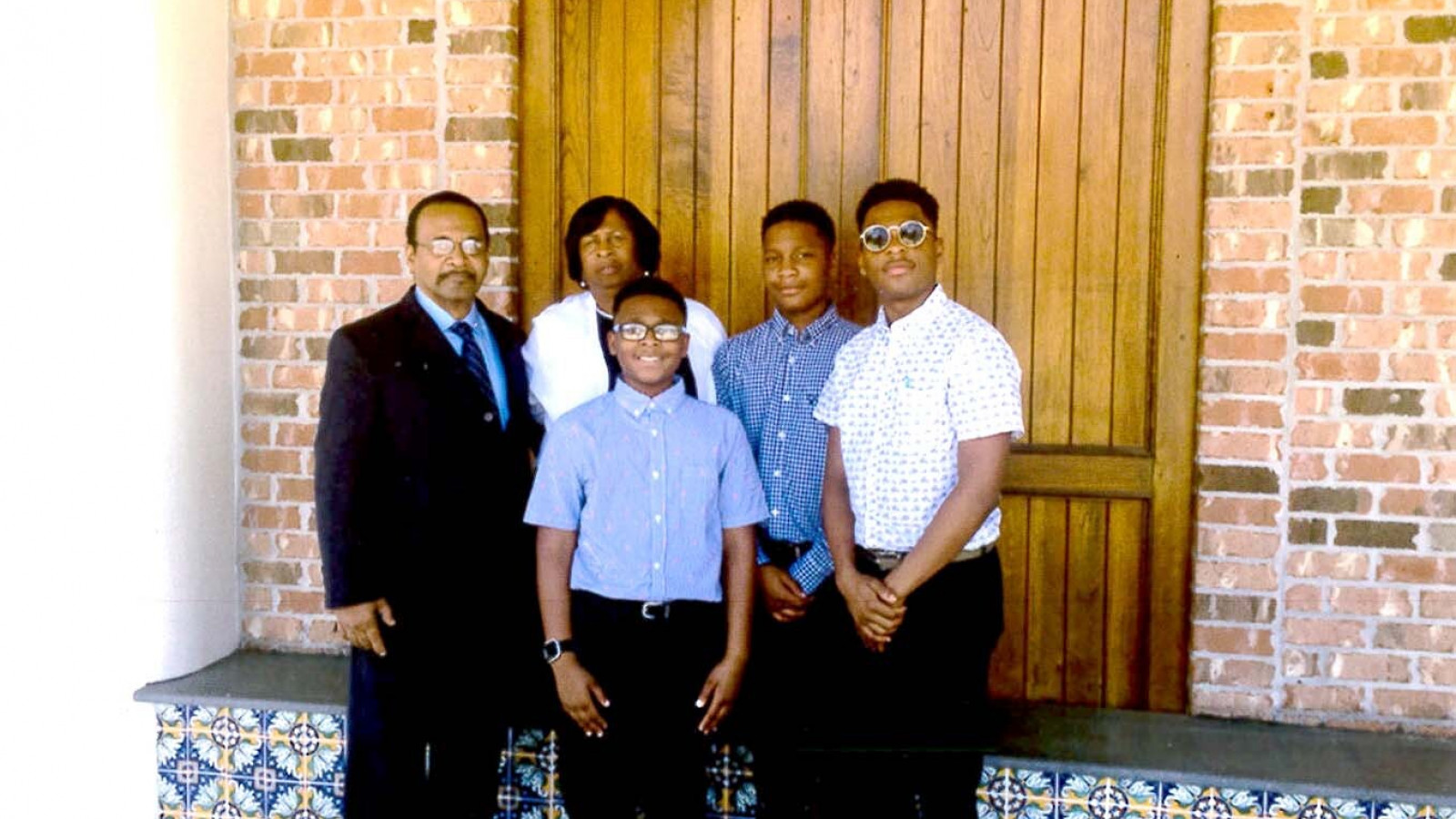After their mother’s estranged husband murdered their mother and several other family members, the three young boys (ages 5 years, 2 years, and 8 months) went to live with their grandparents Robert and Claudia Brown.
The Browns were given physical custodial rights in court. But, they were never told that it was a possibility to become the boys’ foster parents, and they have never received any financial assistance or other services and supports that children in foster families would receive.
The Browns Attempt to Navigate a Complex Court System
Soon after the murder, they learned from the police that their son-in-law had put out a hit on Claudia since she was the only surviving adult who could testify against him. They took the boys and their youngest daughter who still lived at home to California and later to Georgia for safety reasons. Before the trial in 2008, they moved back to Baton Rouge, but away from their original neighborhood that held so many distressing memories. A complicated and convoluted trial took place in 2008, followed by multiple appeals.
The Browns worked tirelessly for twelve years to adopt their grandsons, but the boys’ father continued to fight it. His parental rights were not terminated, despite being found guilty of murder and receiving 5 death sentences plus 50 years for attempted murder. He has been on death row for many years. His legal fees were covered because he was incarcerated, but the Browns struggled, paying multiple lawyers until one eventually knew how to handle their case. The boys were finally adopted just two months before the eldest’s eighteenth birthday.
The Browns Bear Many Years of Grief, Searching for Mental Health Support
The Browns suffered yet another loss when their son passed away in 2012 from a rare disease that was exacerbated by the trauma he experienced from the murders.
The boys and their grandparents have struggled with the trauma, grief, and loss. The Browns were given little to no information or referrals for services and supports from the sheriff’s department or the court. They knew they needed mental health support right away. They had two lucky breaks.
First, they had kept in touch with a deputy who told them about a nonprofit organization called the Baton Rouge Crisis Intervention Center. There the boys received three years of free treatment from a psychologist specializing in helping children who had experienced trauma. Robert credits the psychologist with helping his grandsons more than anyone. “On Mondays, they would have a group for the kids, and the parents would have a session together too,” explains Robert. “We were doing our best to stay on top of it with the mental health situation.”
In addition, Robert also had employer supports from Coca Cola. They paid for up to three free sessions with a psychologist for any of Robert’s family members traumatized by the events.
A decade later they got lucky again when a co-worker of Claudia’s happened to tell her about the Grandparents Raising Grandchildren Information Center of Louisiana, which offers information, referral, support groups, workshops, and conferences for grandfamilies. Through the Center, they found the lawyer who finally helped them adopt their grandchildren. They also connected with other grandparents in similar situations who share tips and moral support.
The Browns Use Retirement Savings to Care for Their Grandsons
Raising three more children, along with the legal fees, the complications of having to move around for safety, and the other expenses has heavily impacted the financial security the Brown’s worked so hard to build. Claudia was a teacher and continues to work for the school system. Robert is now retired.
“We’ve spent our 401Ks and retirements and stuff like that all to keep these children safe and keep them in a good environment so they can do things without looking over their shoulder. That’s the only thing I can do - do best for them.”
- Robert Brown
Robert says they have no regrets and expresses gratitude for the things that have been the most helpful: their grandparent support group, their remaining family members, and their faith. Because of their retirement resources, they have been able to provide a stable, safe home for their grandsons.
The boys, now ages 21, 18, and 16, are doing well overall.
They still have their ups and downs, but they are being productive. These boys are smart. They’re pretty close. They looked after each other. That’s what family does.”
The Browns remain active with the Grandparents Raising Grandchildren Information Center of Louisiana, and Robert serves as a member of Generations United’s GRAND Voices network.
Robert and Claudia Brown are two of millions of grandfamily caregivers in the United States. To help other grandfamilies avoid the challenges they faced, the Browns remain active with the Grandparents Raising Grandchildren Information Center of Louisiana, and Robert serves as a member of Generations United’s GRAND Voices network.
While grandfamilies are of all geographic locations, socio-economic levels, and races/ethnicities, Black, American Indian, and Alaska Native children are the most likely to be in grandfamilies. Grandfamilies arise out of events that separate children from their parents, such as death, including from COVID-19, substance use, incarceration, mental illness, divorce, or military deployment. The systems and services that help U.S. families—in areas such as housing, education, and health care—were not designed for grandfamilies.
Read more stories and learn how policymakers can help create policies and systems that better support grandfamilies in Generations United’s 2021 State of Grandfamilies report.
This story was edited and re-posted with permission from Generations United.
